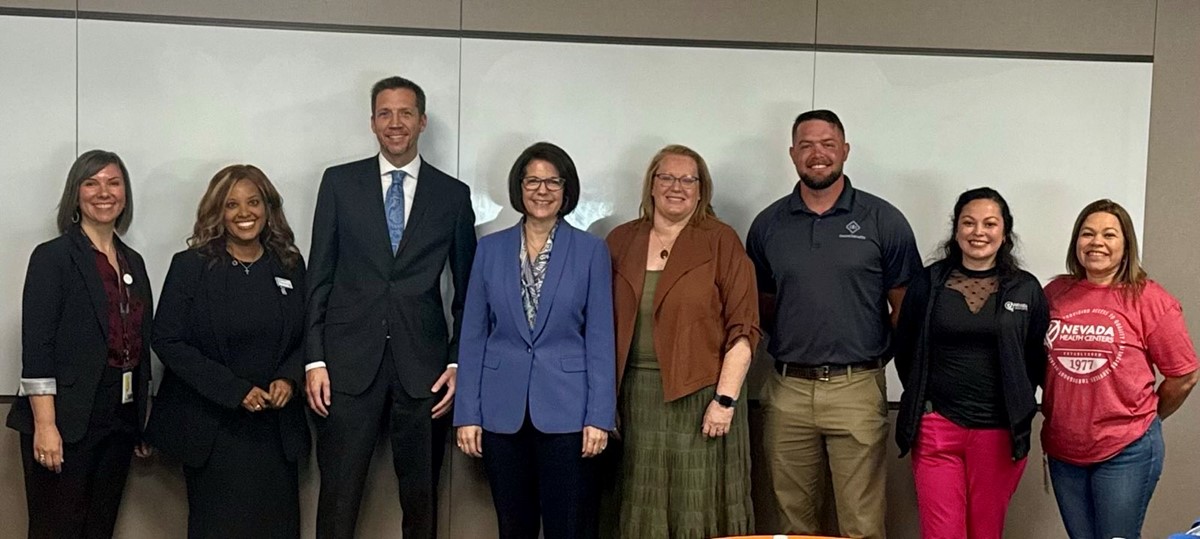U.S. Senator Catherine Cortez Masto recently hosted a pivotal roundtable in Reno, Nevada, focusing on critical health care concerns due to looming cuts that threaten access to affordable medical services. The event brought together health care workers, representatives from local health organizations, insurance navigators, and recipients of health care tax cuts. The discussions centered on the urgent need to address the repercussions of Republican tax reforms that have not extended essential Affordable Care Act (ACA) enhanced premium tax credits.
A central theme of the roundtable was the significant risk that over 20,000 Nevadans could lose their health care coverage if these premium tax credits are not extended. Senator Cortez Masto underscored the stark reality of the situation, asserting, “If my Republican colleagues refuse to work with us to extend the lifesaving ACA tax credits, it will be devastating for Nevada families, workers, and small businesses.” Her commitment to securing affordable health care for all Nevadans was evident throughout the event, highlighting her ongoing battle to combat rising premiums and loss of coverage.
Contributing to the dialogue, Sharon Chamberlain, CEO of Northern Nevada HOPES, emphasized the importance of consistent access to health care for community resilience. She noted that individuals losing coverage often delay necessary care or forgo medications altogether, which can compromise their health and well-being. This statement was echoed by Walter David, CEO of Nevada Health Centers, who also advocated for the extension of the enhanced premium tax credits. According to David, maintaining access to affordable insurance not only supports individuals but fosters a healthier, more productive community.
The roundtable further illuminated the complexities surrounding health care insurance, particularly as the upcoming open enrollment period approaches. Joe Lovely, a health insurance broker, expressed concern over the challenges that current recipients of the Enhanced Premium Tax Credit (EPTC) may face if the credits are not renewed. With affordability being a major factor in choosing health insurance, he highlighted the potential consequences for Nevadans who might find themselves unable to afford coverage under marketplace plans without the EPTC.
Compounding the situation, the recent Republican tax reforms have sparked heated debate over fairness and the prioritization of wealthy individuals over those in need of essential services. In addition to the failure to extend ACA tax credits, the tax law reportedly threatens to disenroll over 100,000 Nevadans from Medicaid. The implications of this policy are profound, as it potentially leaves vulnerable populations without necessary health insurance protection.
The economic ramifications are equally concerning. According to estimates, if the ACA enhanced premium tax credits expire, a family of four in Nevada with an income of $56,000 could see their monthly health care premiums rise by an astonishing $205, which translates to nearly $2,500 annually. Such drastic increases would inevitably force many families to reassess their health coverage options, leading to adverse health outcomes and increased reliance on emergency services.
Senator Cortez Masto has consistently championed health care reforms aimed at improving access and affordability. Her advocacy includes initiatives to lower prescription drug costs for seniors, holding pharmaceutical companies accountable, and expanding Medicare drug price negotiations. In addition, she has made strides to enhance behavioral health services and telehealth options, which are increasingly vital in rural and underserved areas.
The urgency of addressing these health care cuts cannot be overstated. As Senator Cortez Masto articulated during the roundtable, “Nevadans deserve better.” Her commitment to protecting access to health care resonates deeply with both health care professionals and the patients they serve. The roundtable was a solemn reminder of the ongoing struggle many families face regarding healthcare affordability and accessibility, and it echoed a bipartisan call for Congress to prioritize the needs of their constituents over partisan interests.
In conclusion, the challenges surrounding health care access in Nevada highlight a broader national conversation about health care affordability and the role of government in ensuring that every citizen has access to care. The looming expiration of the ACA enhancements is a stark reminder of the precarious nature of health care coverage in America, particularly for low- and middle-income families. Senator Cortez Masto’s efforts in advocating for these essential services remain crucial as the situation develops, and her determination to fight for all Nevadans is an inspiring call to action for policymakers and citizens alike. The upcoming policy decisions will undoubtedly shape the future of health care for countless individuals, making it imperative for all stakeholders to come together to promote sustainable, equitable health care solutions.
Source link


&w=150&resize=150,150&ssl=1)







